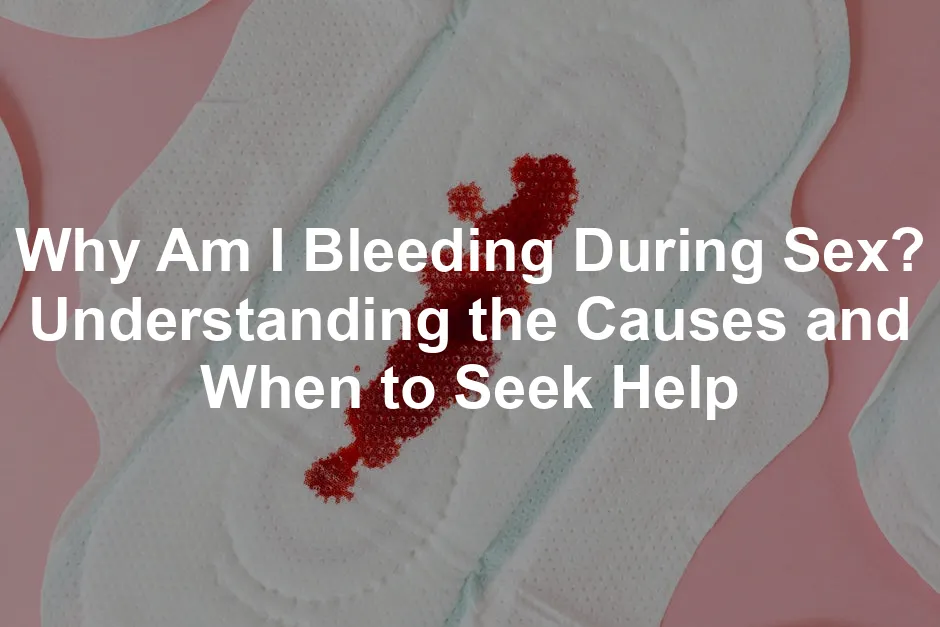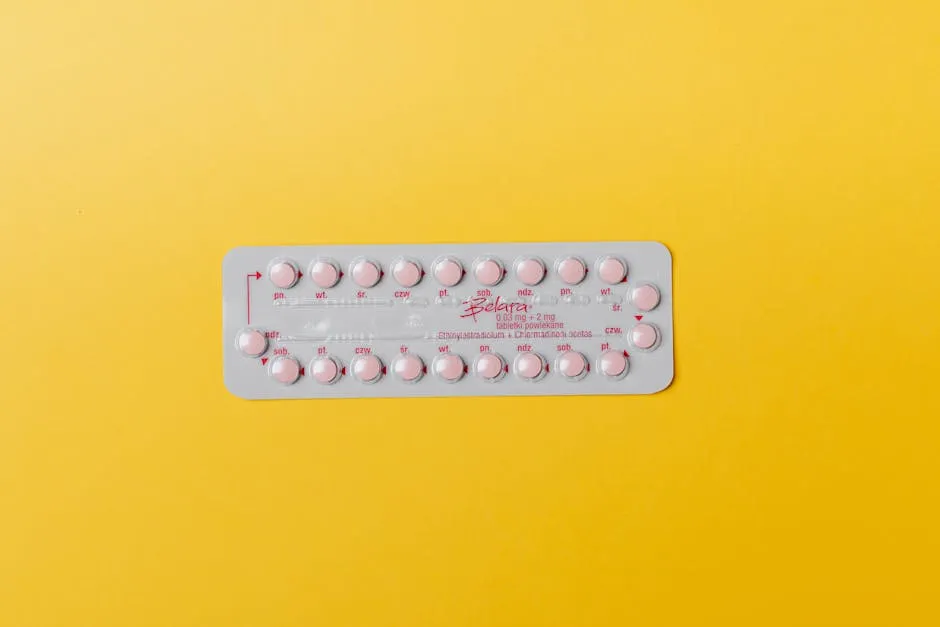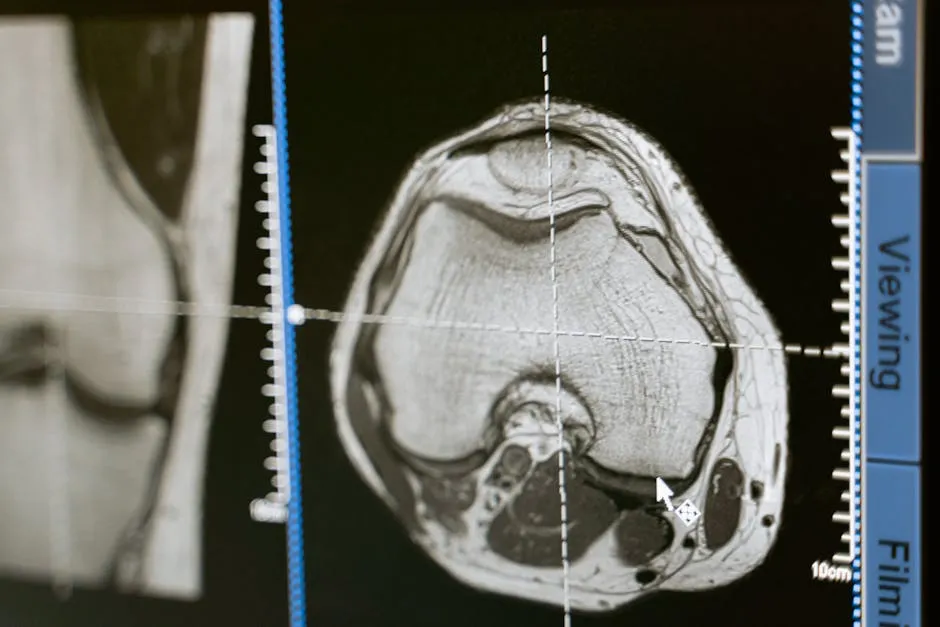
Why Am I Bleeding During Sex? Understanding the Causes and When to Seek Help
Introduction
Have you ever experienced bleeding during or after sex? This is known as postcoital bleeding. It’s a common concern among many people. Understanding why this happens is crucial. While it can be alarming, many underlying causes are benign.
Summary and Overview
Postcoital bleeding refers to any vaginal bleeding that occurs after sexual intercourse, affecting about 9% of menstruating individuals. The bleeding can manifest as light spotting or heavier flows. Recognizing patterns in your symptoms is vital. For instance, is it accompanied by pain or unusual discharge? These details can help determine if medical attention is necessary. Some causes require immediate care, while others may simply need lifestyle adjustments.
One way to enhance your comfort during intimate moments is by using a water-based lubricant. It can significantly reduce friction and enhance pleasure, making your experience more enjoyable!

Common Causes of Bleeding During Sex
Vaginal Dryness
One major cause of bleeding during sex is vaginal dryness. When there isn’t enough lubrication, friction can lead to minor tears in delicate vaginal tissue. This can happen due to hormonal changes, certain medications, or lack of foreplay.
To combat vaginal dryness, consider these tips:
- Use water-based lubricants to enhance comfort.
- Ensure adequate foreplay to increase natural lubrication.
- Stay hydrated to maintain overall health.
By taking these steps, you can reduce the risk of bleeding and enhance your sexual experience. If dryness persists, consult a healthcare provider for tailored advice.
Understanding the causes of postcoital bleeding is crucial for maintaining sexual health. Regular check-ups can help you stay informed and address any concerns. Remember, your body communicates important signals, so don’t hesitate to seek help when needed.

Infections
Bleeding during sex can often be linked to infections. Sexually transmitted infections (STIs) like chlamydia and gonorrhea are common culprits. These infections can cause inflammation in the cervix, leading to bleeding. If you find yourself wondering why do I keep getting yeast infections, it’s essential to seek medical advice.
Understanding the relationship between infections and bleeding is important for sexual health. why do I keep getting yeast infections
Accompanying symptoms may include unusual discharge, itching, or burning sensations. If you notice these signs, it’s vital to seek medical attention. Early treatment can prevent complications and promote healing. Remember, ignoring these symptoms can lead to more severe health issues.

Cervical Ectropion
Cervical ectropion occurs when cells from the inside of the cervix are present on the outer surface. This condition is quite prevalent among younger women and those using hormonal contraceptives.
It can cause bleeding during intercourse due to inflammation and sensitivity. Although generally benign, it’s essential to monitor for excessive bleeding or discomfort. Consulting a healthcare provider can help you understand your options and manage symptoms effectively.

Polyps and Fibroids
Cervical or uterine polyps are small, usually benign growths on the cervix or uterus. They often result from hormonal changes and can cause postcoital bleeding. These polyps may bleed when touched during sex.
Uterine fibroids, another common issue, are benign tumors that can develop in the uterus. They can also lead to bleeding during or after sex. Regular check-ups can help identify these conditions early, ensuring appropriate treatment options are available.
For those looking to boost their reproductive health, consider reading a Men’s health book that offers insightful tips and information!

Trauma and Injury
Injuries from vigorous sexual activity can lead to bleeding. Lack of foreplay may increase the risk of tearing sensitive vaginal tissue.
Even minor abrasions can cause bleeding without accompanying pain. It’s essential to listen to your body and communicate with your partner about comfort levels. If bleeding occurs frequently or is heavy, consider consulting a healthcare professional.

Hormonal Changes
Hormonal fluctuations can significantly impact your body during different life stages. For instance, menstruation, pregnancy, and menopause are times when hormonal changes are common.
These fluctuations can lead to increased sensitivity in the cervix, making it more prone to bleeding during sex. If you experience persistent or concerning bleeding, it may be wise to discuss these changes with your healthcare provider. They can help determine the best course of action based on your specific situation.

Cancer
Experiencing bleeding during sex can sometimes indicate serious conditions. Cervical and endometrial cancer are two significant concerns. These cancers might cause postcoital bleeding, often accompanied by other unusual symptoms. It raises the question of why are more young adults getting cancer.

The rising incidence of cancer among young adults is a concerning trend. why are more young adults getting cancer
Regular screenings are essential for early detection. If you notice any unusual bleeding, it’s crucial to monitor these symptoms closely. Don’t hesitate to reach out to your healthcare provider for guidance and screening options.

Risk Factors for Bleeding During Sex
Several common risk factors may increase your likelihood of experiencing bleeding during sex. Hormonal contraceptives can lead to changes in cervical tissue sensitivity, causing bleeding. Recent childbirth can leave vaginal tissues inflamed and sensitive, which might also result in bleeding.
Menopause is another significant factor. The decline in estrogen can lead to vaginal dryness and atrophy, making the tissues more susceptible to tearing. Understanding these risk factors can help you anticipate and manage potential bleeding during sexual activity.

When to See a Doctor
Knowing when to consult a healthcare provider is vital. Seek medical advice if you experience heavy or persistent bleeding. It’s particularly important if you notice bleeding after menopause, as this could signal a more serious issue.
Other concerning symptoms include bleeding that lasts longer than a few days or occurs frequently. Timely medical evaluation is essential to rule out serious conditions and ensure your well-being.

Diagnosis of Postcoital Bleeding
The diagnosis process for postcoital bleeding typically begins with a thorough medical history assessment. Your healthcare provider will inquire about your symptoms and sexual history.
A pelvic exam is often necessary to check for any abnormalities. Imaging tests, such as ultrasounds, can help visualize underlying issues, while lab tests may be conducted to identify infections. This comprehensive approach ensures a proper diagnosis and informs the best treatment options.

Treatment Options for Postcoital Bleeding
When addressing postcoital bleeding, treatment focuses on the underlying cause. For instance, if vaginal dryness is the culprit, using lubricants can significantly help. Water-based lubricants are often recommended to reduce friction during intercourse. This simple adjustment can enhance comfort and decrease the likelihood of bleeding.
If an infection is identified, antibiotics are typically prescribed. Treatments may vary based on the specific infection, so it’s essential to consult a healthcare provider for a proper diagnosis. Regular screenings for STIs can also play a crucial role in prevention.
In cases where cervical polyps or fibroids are diagnosed, further evaluation is necessary. Polyps may require removal, especially if they cause persistent bleeding. For individuals diagnosed with cancer, a comprehensive treatment plan will be needed, which may include surgery, chemotherapy, or radiation therapy. Early detection is vital for effective management and recovery.
And while you’re at it, consider investing in a first aid kit for peace of mind. You never know when you might need it!

Preventing Bleeding During Sex
Preventing postcoital bleeding often involves a few practical strategies. First, consider using lubrication during sexual activity. This can help alleviate friction and reduce the chances of minor tears. Additionally, engaging in adequate foreplay can enhance natural lubrication, making intercourse more comfortable.
It’s also crucial to communicate openly with your partner about comfort levels. Discussing what feels good and what doesn’t can help avoid situations that might lead to injury. Gentle techniques during sex can further minimize the risk of trauma to sensitive areas.
Lastly, staying hydrated and maintaining overall vaginal health can contribute to a more enjoyable experience. Regular gynecological check-ups are essential for monitoring changes and addressing issues before they escalate.

If you’re looking to unwind and create a soothing atmosphere, consider using an aromatherapy diffuser. It can transform your space into a relaxing haven!
Conclusion
Bleeding during or after sex can stem from various causes, including vaginal dryness, infections, and more serious conditions. Understanding these causes is crucial for effective management. It’s essential to monitor your body and seek medical advice if you experience concerning symptoms. Remember, regular check-ups and open communication about sexual health can significantly enhance your overall well-being. Don’t hesitate to reach out to a healthcare provider for support or guidance. Your health matters!
FAQs
Is it normal to bleed a little after sex?
Occasional light bleeding or spotting after sex can be normal, especially if it happens infrequently. This might occur due to minor friction or hormonal changes. However, if you notice frequent bleeding or it becomes heavier, it’s time to consult a healthcare provider. Persistent bleeding may indicate a need for further evaluation.
What sexually transmitted infections can cause bleeding?
Several STIs can lead to postcoital bleeding. Common ones include chlamydia, gonorrhea, and trichomoniasis. These infections often cause inflammation, making tissues sensitive and prone to bleeding. If you suspect an STI, seek testing and treatment promptly to avoid complications.
Can deep penetration cause bleeding?
Yes, deep penetration can sometimes lead to bleeding. This may happen due to trauma to the vaginal walls or cervix, especially if there isn’t enough lubrication. If you experience bleeding after deep penetration, consider adjusting techniques or using lubrication to lessen friction.
Should I be worried if I bleed after sex during pregnancy?
Bleeding during pregnancy can be concerning, but it’s not always a sign of a serious issue. Light spotting can occur due to increased sensitivity in the cervix. However, if you experience heavy bleeding or pain, contact your healthcare provider immediately to rule out complications.
How can I prevent bleeding during sex?
To minimize the risk of postcoital bleeding, maintain good vaginal health. Here are some tips: – Use water-based lubricants to reduce friction. – Ensure adequate foreplay to enhance natural lubrication. – Communicate openly with your partner about comfort levels. – Consider regular gynecological check-ups to monitor your health.
Please let us know what you think about our content by leaving a comment down below!
Thank you for reading till here 🙂
And if you’re looking to spice things up in the kitchen, a cookware set can elevate your culinary skills!
All images from Pexels




